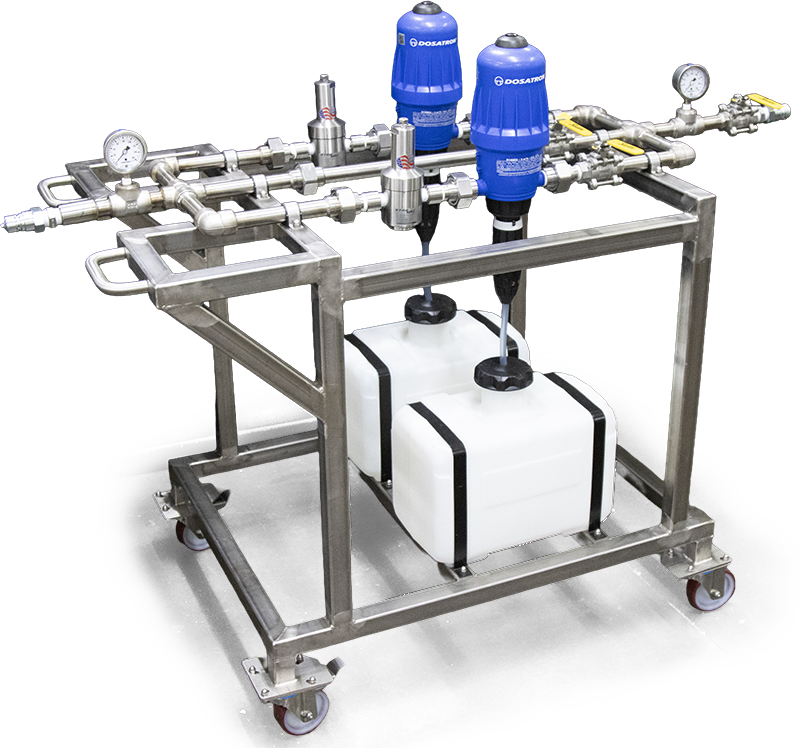Overview
Labor-Intensive Conveyor Belt Cleaning Results in High Expenses and Downtime
A large industrial bakery sought BETE’s expertise to improve several processes in one of their main production facilities with the goal of increasing efficiency and conserving resources. One of the significant challenges is conveyor cleaning on three of their baked goods production lines – the belts are extremely difficult to clean as they build up chocolate and other sticky glazes. The bakery relied on an expensive outside cleaning service to completely disassemble the conveyors and manually wash down and sanitize major components. This weekly requirement took six to eight hours and cost up to $16,000. Faced with rising costs and significant downtime, the bakery began investigating alternative options to help save money and boost production while increasing the quality and safety of their products.

BETE Develops New CIP Spraying System to Slash Cleaning Time to 30 Minutes and Minimize Disassembly Needs
BETE engineers visited the bakery to assess their challenges and identify additional ways spray technology could benefit them. Focusing first on the conveyors, BETE designed a Clean-in-Place (CIP) sanitation system comprised of a portable stainless steel cart that connects directly to their existing plant water and delivers up to two chemicals, typically a cleaner and sanitizer. To apply these chemical solutions, BETE proposed fixed spray headers above each conveyor line using NFD dovetail, flat fan nozzles. The NFD spray nozzles’ dovetail joint ensures proper nozzle alignment and allows for simple maintenance and tip replacement. A single cart can service all three lines, easily connecting to each spray header for fast, repeatable washdown and sanitation.
BETE returned to the facility to test the system in conjunction with a demo spray header. The trial proved the spray system to be highly efficient and effective. It reduced washing and sanitizing from two to three hours per conveyor to just 30 minutes per unit and significantly extended the intervals for complete disassembly. For the wider conveyors requiring more nozzles, BETE included a pump package to deliver the pressure and flow needed for greater impact, effectively cleaning heavier soils.

In addition to saving time and increasing production, the cleaning system:
- Provides more thorough cleaning
- Repeatable results
- Improves the quality and safety of their baked goods
- Reduces water usage and manual labor
RESULTS
The successful implementation of BETE’s spray headers and portable sanitation cart eliminates the need for a cleaning service and excessive manual labor, saving the bakery up to $16,000 per week. Cleaning cycles that once required two to three hours now take just 30 minutes, boosting production time by approximately two and a half hours per conveyor, seven and a half hours per week, or 390 hours per year.
Due to the system’s success, BETE developed the new FlexiSan Modular Spraying System, which consists of a portable cart and one or more spray headers for cleaning, rinsing, and sanitizing conveyors and other production equipment. BETE also offers the FlexiSan Max Modular Spraying System, which includes the optional pump system, mobile cart, and spray header(s).






